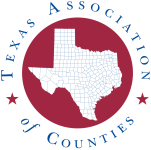Publications
Behavioral Health
Return to County Legislative Issues
The county jail system is the largest mental health system in the state of Texas. Counties face crushing costs in providing certain constitutional minimum levels of care, including mental health services.
The state should adequately fund community mental health, crisis and transitional services that divert the mentally ill from courts, emergency rooms and jails, and ease the financial burden on local government and taxpayers.
Key Points
- Mental health and the criminal justice system are closely interrelated. Substance abuse adds even more complexity to this system.
- The criminal justice system is among the largest cost drivers in the county budget.
- Counties must provide certain constitutional minimum levels of care, including mental health care, while a person is incarcerated in a county jail.
- Counties can provide funds directly to local mental health centers and other assistive community programs when budgets allow.
- According to the Texas Council of Community Centers, counties have increased support to local mental health agencies in recent years.
- Local taxing authorities contributed about $476 million to mental health community centers. Of this amount, approximately $371 million (78 percent) came from county government.
- Funding for local mental health crisis services and mental health rehabilitation must be fully appropriated. Gaps in service must be identified and addressed to relieve the burden on the criminal justice system.
- Community diversions and other programs are where the most timely, cost-effective, beneficial, preventative and successful mental health services are delivered — and the state must fund them.
For more information contact:
Legislative Consultant
Kelsey Bernstein
(800) 456-5974

